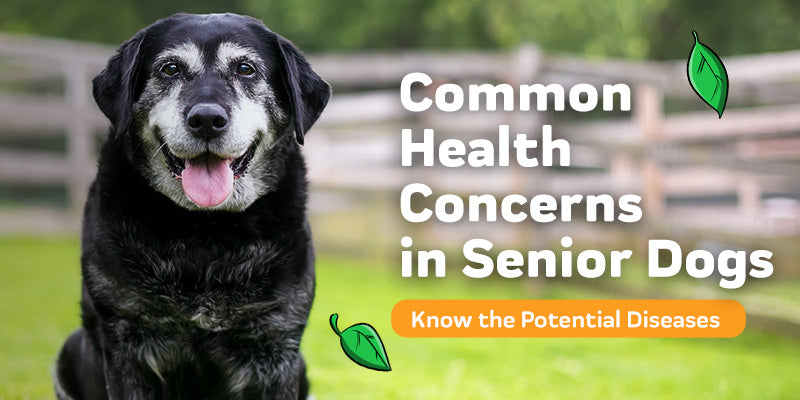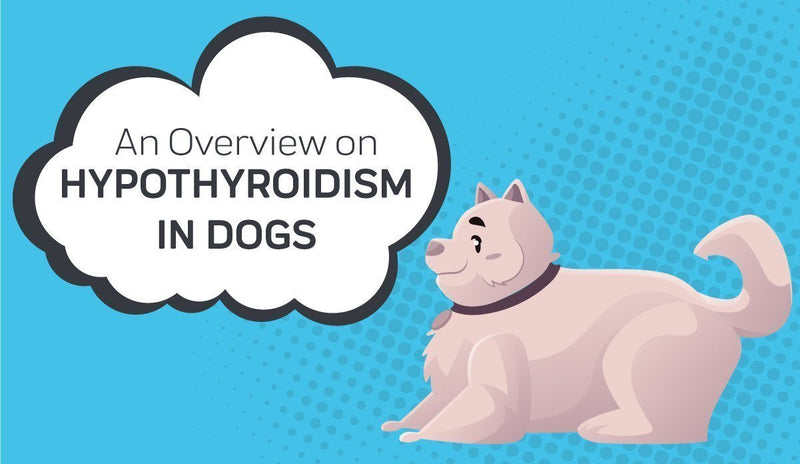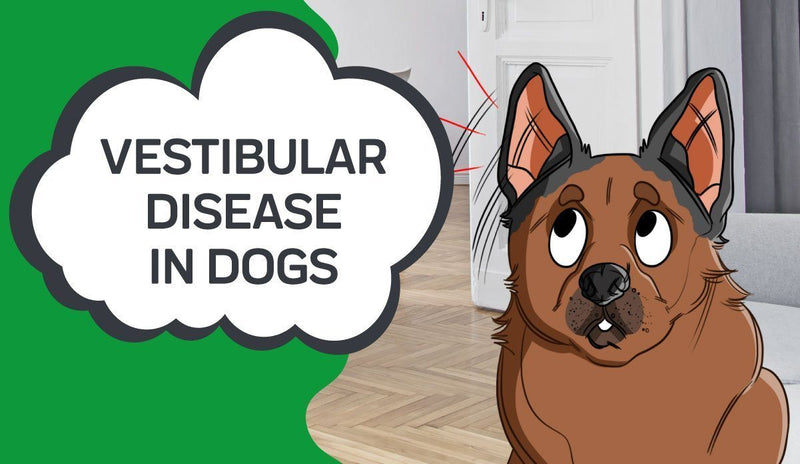
For dog owners, kennel cough is an illness worth avoiding. It's known to be extremely contagious and easily passed. Technically, this illness is known as infectious tracheobronchitis, but kennel cough tends to be easier to remember and say. This name also gives off the accurate idea that the illness can be commonly found in areas with high dog populations.
Dogs with this illness typically have a cough that may even be a hacking cough. Let's take a closer look into this illness as well as how to avoid it, notice when your dog has a cough caused by kennel cough, and treat it effectively. That way, you'll know what to do when your dog has a cough!
TABLE OF CONTENTS
1. What Is Kennel Cough In Dogs?
2. What Does Kennel Cough Do?
3. What Is Bordetella?
4. Kennel Cough Causes In Dogs
5. Kennel Cough Symptoms
6. How Long Does Kennel Cough Last?
7. The Sounds Of Kennel Cough
8. What Is Reverse Sneezing?
9. Natural Kennel Cough Treatments
10. Standard Kennel Cough Treatments
11. Kennel Cough Prevention
12. CBD For Dogs
13. CBD For Kennel Cough
14. Top CBD Products
15. Kennel Cough In Dogs: The Bottom Line
What Is Kennel Cough In Dogs?
If your dog commonly goes to doggy daycares, kennels or even dog parks, they run the risk of catching kennel cough. What sets this illness apart from others is that it doesn't tend to be a subtle cough, but instead a hacking or even choking one. In some cases, you may even start to wonder if your coughing dog has something stuck in their throat.
However, rather than choking, that odd dog sound is due to coughing and kennel cough. This is one reason why it can be a good idea to get your dog vaccinated for Bordetella.
The good news is that if your dog has a cough, there are a variety of treatment options available. In most cases, owners can find themselves wondering how serious the kennel cough may be, but it's typically not too much of an issue. Kennel cough could kill a dog, but it's typically only that much of a problem for those who are very young, old, or unhealthy aside from the illness.
What Does Kennel Cough Do?

Largely, the name speaks for itself. If you have a dog that is often socializing with other dogs and begins coughing, hacking, or even seems to be choking regularly, then it's worth wondering if dog kennel cough might be the culprit. Make sure to get them checked out as soon as possible so that the problem can be resolved with the help of a vet.
What Is Bordetella?
Bordetella bronchispetica is one of the common causes of kennel cough. It's a bacteria which, simply put, can invade the airways of your dog. This results in coughing in dogs due to the irritation they are experiencing.
Oftentimes, antibiotics are used as a Bordetella treatment. There is also a vaccine that can assist with this as well as other common bacteria that can cause kennel cough. Make sure to ask your vet about this option if you think your dog might be at a higher risk for it.
Kennel Cough Causes In Dogs
Typically, kennel cough comes from Bordetella, though it can come from other varieties of bacteria as well. It's also worth keeping in mind that this bacteria can live for several days when it's in moist, warm conditions.
So when your dog breathes in droplets from the nose of an infected dog, share a bowl or otherwise come into direct contact with an infected dog, they can end up with the illness.
If you're concerned about kennel cough, then it can be worth keeping in mind that there can be an incubation period of anywhere from 3 days to as long as two weeks. The good news is that it's not an illness that humans can get from their dogs, but it's uncertain whether or not it can pass to cats.
Some of the agents that can cause kennel cough are:
- Canine adenovirus
- Canine coronavirus
- Bordetella bronchiseptica
- Canine herpes virus
-
Canine influenza virus
Kennel Cough Symptoms
Knowing the symptoms of kennel cough can go a long way towards catching and treating it early.
Common symptoms of kennel cough include:
- Coughing, especially triggered by pressure against the trachea
- Easily-irritated lungs and windpipe
- Nasal discharge
- Generally feeling under the weather
The symptoms of this illness can vary in strength. Sometimes, dogs can make themselves ill by coughing too hard, while sometimes symptoms like a runny nose may be more difficult to catch. The key thing to look out for is a dog's hacking cough.
Even if you are uncertain, it's a good idea to visit the vet if you suspect kennel cough. Furthermore, that there is a decently long kennel cough incubation period, so you'll want to keep an eye on them for a couple of weeks after they may have come in contact with an infected dog.
How Long Does Kennel Cough Last?
Largely, this can depend on the bacteria that is causing a specific case. Because the most common bacteria is Bordetella, we're going to take a look at that one. The good news is that this option can be cleared up in just a few days with the use of antibiotics for kennel cough.
However, things can get tricky if the illness is being caused by herpes or parainfluenza virus. During these situations, it can require around four weeks to get the kennel cough cleared up completely. Typically, it can take around a two to four-week duration to get rid of kennel cough in your dog.
Because of that, it's important to buckle down and be prepared for a longer battle if your dog has kennel cough. During this time, it's best to keep your dog away from others so that they don't pass the kennel cough onto them.
The Sounds Of Kennel Cough
Some may wonder if their pet is suffering from kennel cough because you can hear that your dog is wheezing. However, your dog wheezing is more likely to be due to canine asthma than to kennel cough. Canine asthma can be rather serious, so make sure to get your dog to a vet if you hear wheezing dog sounds.
Instead, common kennel cough sound is often a hacking cough that tends to be very dry. When it gets rough, the kennel cough can sound like honking, or they may cause themselves to puke or dry heave because the dog's coughing is too hard. It can often be difficult for them to stop once the coughing has started.
The kind of coughing you see with kennel cough isn't going to be just a few small coughs, but instead something that may even become alarming due to the intensity. Some can even think their dog is choking.
What Is Reverse Sneezing?
While reverse sneezing might sound similar to kennel cough in some ways, it's an entirely separate condition. Typically, it's the result of a dog having a palate that is too soft. That said, there can be cases in which your dog may reverse sneeze as a result of kennel cough. This tends to happen when the infection has resulted in the airway becoming swollen and narrowed.
If your dog is sneezing and coughing, then it's worth having them checked out just to see what might be going on. It might be kennel cough, or it may be another issue.
Natural Kennel Cough Treatments
While antibiotics or other medications are typically needed to cure kennel cough, there are some natural dog coughing treatments you can use to help with easing that process along. Try out the following methods to get your dog back to their happy selves. There may also be some cases in which these methods are all you need, but your vet will need to determine the cause of the kennel cough to know that.
Use A Humidifier
A humidifier in the area your dog spends the most time in can help to soothe their passageways, allowing them to cough a little less and heal more quickly. You can also use steam for the same purpose, but be careful that your dog doesn't touch any of the hot water used.
Honey
Many humans are aware just how helpful honey can be with a sore, dry throat. The same is true for dogs. Honey can help to coat their throat, providing some soothing comfort. Typically, about half to a whole tablespoon is enough to help, or you can mix the honey into some warm water.
Cough Suppressants
Cough suppressants can also be a useful way to keep your dog from coughing too much. Often, they will be prescribed by your vet. Because of this, you may need to ask to find out whether or not the specific suppressants prescribed are natural or not.
Options like these are especially helpful for dry coughs in dogs, because there isn't often much phlegm for them to get out, only irritation. They can help to limit the dog coughing and hacking, allowing their airways to heal and fight back against the bacteria or virus more effectively.
Standard Kennel Cough Treatments
There can be some cases in which kennel may be viral and not in need of antibiotics. Essentially, if that is the case and your dog is still eating well and getting enough rest, it may resolve naturally.
However, if your dog is having trouble sleeping or eating, then the Bordetella treatment may at least get some cough suppressants to allow them to get food and rest. It can really be rough when the dog is coughing at night and keeping themselves awake!
It can generally be expected that as long as your dog is eating, there isn't a serious cause for concern. However, if they aren't and seem feverish, antibiotics may be needed. That way, secondary infections can't move in while your dog isn't strong enough to fight them off.
If you have a household that is home to other dogs or even cats, it can be a good idea to isolate your dog until the illness has passed. That way, only one pet has to suffer from the kennel cough rather than all or several. Also, make sure to wash your hands when you're moving from the ill pet to healthy ones.
Kennel Cough Prevention
If you have an aging dog, or one that might be more at risk of getting kennel cough for any reason, then there is a vaccine that can be quite helpful.
This vaccine is a little odd in that it doesn't come in the form of a shot. Instead, the vet will provide a few drops, which go into the nose of your dog. This allows for immunity in the local area to keep kennel cough germs from making their way to the respiratory system.
Keep in mind that this option needs to be re-administered on a yearly basis to keep your dog safe from the illness. This is especially important to plan for if your dog is going to be around many others. It's also worth noting that this vaccine protects against the most common kinds of bacteria that can result in kennel cough, but not all of the bacteria that can possibly cause it.
CBD For Dogs
CBD is a great option for dogs whether they are healthy, aging, or dealing with an illness. It works fantastically as a supplement and can tackle inflammation in the body in a number of ways.
While it may not be a cure for kennel cough, it is a substance that can help with keeping your dog a little more comfortable while they're healing up. It's also an option that can help to keep your dog healthier for the long term, resulting in fewer issues as they age.
Another aspect worth noting is that quality CBD options are natural and perfectly safe. They contain very little to no THC, so you won't need to worry about your dog experiencing a high. Instead, they will get to enjoy the positive aspects without any changes to their personality.
CBD For Kennel Cough
Kennel cough, as well as most other illnesses and conditions, come back to an issue with inflammation somewhere in the body. CBD is able to assist this through providing anti-inflammatory features in a natural way. It's a great way to limit the medications needed for many issues.
If your dog has viral kennel cough that isn't causing them too much of an issue, then you can easily add CBD to the natural methods you may use to help in suppressing the need to cough. There are also many great products you can use that are easy to administer!
Top CBD Products
 Innovet offers some really great CBD products that are high-quality, safe and easy to use. They can be extremely helpful in giving your pet some comfort and helping them to stay healthier overall. Check out these fantastic products to find the best one for your canine companion!
Innovet offers some really great CBD products that are high-quality, safe and easy to use. They can be extremely helpful in giving your pet some comfort and helping them to stay healthier overall. Check out these fantastic products to find the best one for your canine companion!
CBD Oil
CBD oil for dogs is one of the most convenient ways to give your dog the supplement. It can easily be dropped into their mouth, and you won't need to worry about a pill. If they are too squirmy for that, you can also add a drop or two into their food and they'll never notice!
CBD Treats
Another fantastic choice is CBD dog treats, which may not be as easy to dose, but they are a delicious way to give your dog a treat and a boost to their health in one convenient item. They also come in a variety of delicious flavors that dogs are sure to love!Both of these great options are worth trying out, and you can get combo packs containing both as well!
Kennel Cough In Dogs: The Bottom Line
If you suspect that your dog might have kennel cough, stay calm! While some may think otherwise, the illness isn't typically a huge problem for healthy adult dogs. Dogs that already suffer from health issues, are aging or very young can have a harder time healing from it.
Another aspect to remember is that you're not likely to be able to guess the cause of the kennel cough your dog may have on your own. Because of this, it's important to get them to a vet so that the correct course of recovery may be taken.
Sources:
Kennel Cough in Dogs Kennel Cough in Canine
Kennel Cough in Dogs: Symptoms and Treatments
Promoting potencies of hepatocarcinogenic
















